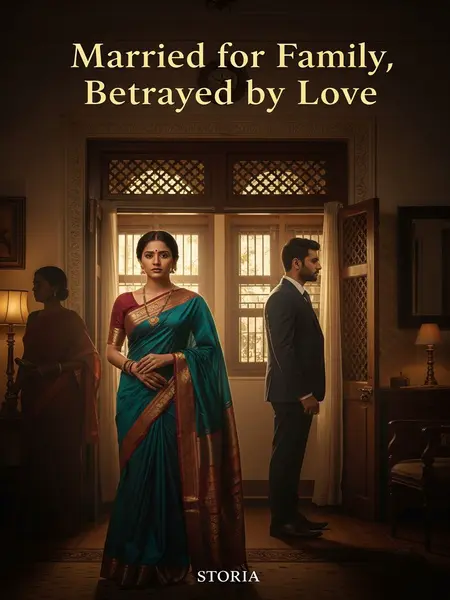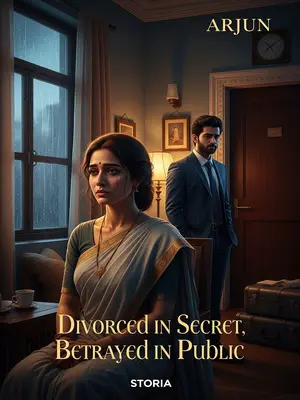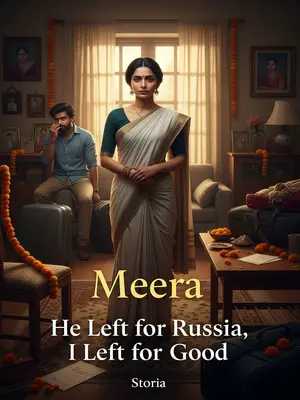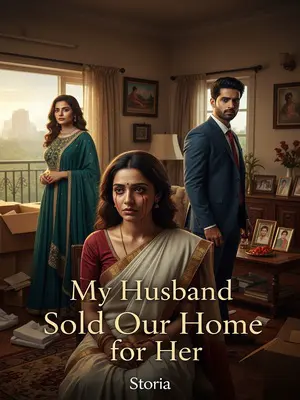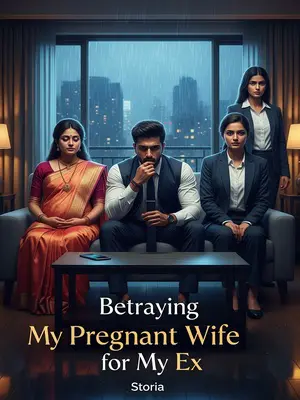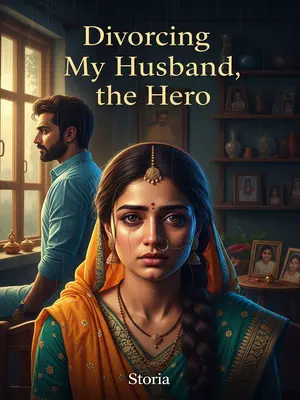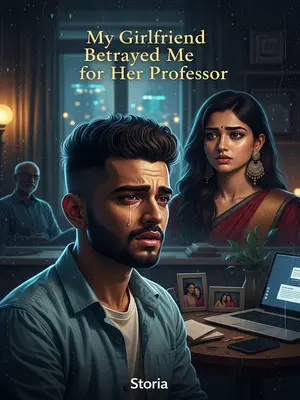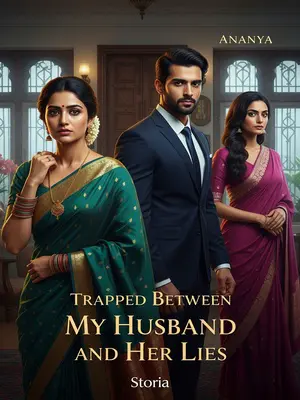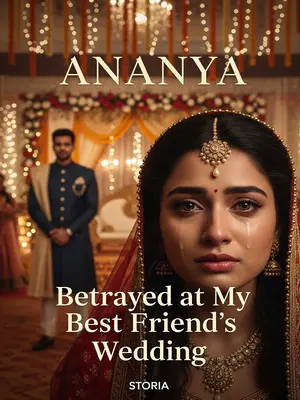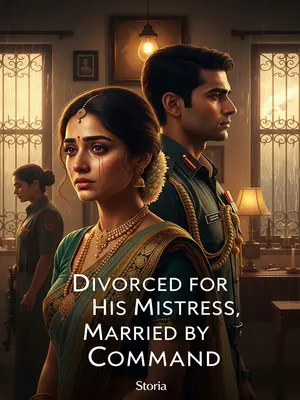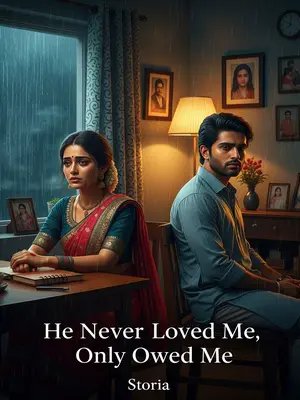Chapter 1: The Marigold Marriage
The scent of marigolds still clung to my hair the night Rohan and I signed our marriage certificate—bound not by love, but by family alliances.
In India, such alliances are woven with careful calculation, not romance—parents matching horoscopes and bank balances, families sizing each other up across silver trays of sweets. Our wedding was a spectacle of excess: the sangeet thumped on past midnight, and the photographers multiplied like mamas and chachas. Yet, beneath the glittering lehengas and the clink of glasses, an uneasy silence curled between us.
That night, after all the guests had left, he stood by the floor-to-ceiling window of our Mumbai apartment, the sharp scent of cigarette smoke mingling with the city’s humid air. He didn’t look at me as he spoke: there was someone else he liked.
Outside, the city lights of Marine Drive blinked endlessly, his cigarette tip glowing like a warning in the dark. His words hung in the smoky hush, heavier than monsoon clouds. Even the ceiling fan seemed to slow, as if it, too, strained to listen.
He described her: poor, resilient, unbroken by hardship—a girl who’d managed to keep her dignity in a city that chews up the weak.
He spoke with a distant admiration, guilt flickering beneath his voice. I could almost picture her: oiled braid, eyes bright with stubborn hope, a faded salwar-kameez clinging to someone Mumbai had tried, and failed, to break.
I stayed silent, a storm of words caught in my throat. I didn’t tell him that I, too, had liked him for years. Instead, I asked quietly, "Toh ab kya karna hai, Rohan? What now?"
I wrapped my dupatta tighter around my shoulders. I pressed my lips together, the way Ma does when she’s holding back tears during family fights. My heart thudded, but my face stayed composed—just as Ma taught me. I swallowed every old memory and waited.
He managed a faint, faraway smile. "Let’s set a limit of two years. I will never again let myself be manipulated by others like I am now."
His words carried the burden of the good son, the obedient grandson. But there was stubbornness in his jaw—the exhaustion of someone tired of living by others’ rules.
"When the time comes, we’ll get divorced. But don’t worry, I’ll compensate you and the Sinha family."
That last line—compensation—stung more than I expected. Only in our world could heartbreak be measured in property or gold. His words sat cold and hard in the room, like the marble floors beneath our feet.
I agreed.
I forced myself to nod, just as Dadi always instructed: "Haan beta, agree and move on—family ki izzat sabse pehle." I couldn’t tell if I was relieved, or just empty.
But when that day finally arrived, he was unwilling to let go.
---
Three months after marrying Rohan, I finally met Priya.
It was a sticky September afternoon, the city still pulsing from Ganpati visarjan. I didn’t know her name at first. Her hair was in a hurried plait, her eyes wary but determined—the kind that comes from riding local trains all your life.
That day was my birthday.
The Sinha family had started planning half a month in advance—venue, desserts, wine—every detail the best that money could buy.
Each piece was curated with Sinha extravagance. A Bandra caterer, Belgian chocolate cake (though everyone secretly longed for Ma’s rasmalai). The invitations went out weeks ahead; even the florist’s boy grumbled about the mogras for the entrance.
I overheard an aunty, voice booming above the clink of glasses, adjusting her heavy pallu: "Dadaji Sinha really values this bahu. Sneha is not just anyone. Sinha parivaar ka maan-samman hai!"
"All the most powerful people in South Mumbai must be here, right?" Another uncle, glass in hand, surveyed the room: politicians, film producers, diamond merchants. He sounded as if he owned the place.
And it was true.
Yet, even so, something unexpected shattered the evening.
The ACs struggled against the September humidity, and the distant sound of dhol from a Ganpati procession floated up from the street. Suddenly, the chandelier overhead came crashing down.
There was a gasp—a collective intake as the room froze. Crystal rained down like a thousand dreams, shattering in a terrifying arc. Even the tabla player’s hands hovered, suspended mid-air.
At that moment, only a waiter and I were beneath it.
My hand instinctively went to my saree pallu, heart pounding. The waiter—head down, hands trembling—stood so close, I could hear her breath. My feet wouldn’t move.
Chaos erupted. I was about to dodge when I saw Rohan pushing through the crowd, shouting: "Hato! Move aside!" Relatives parted, some filming, others just gaping.
But he didn’t come for me. He pushed past the crowd, arms outstretched, pulling the waiter—no, Priya—close, as if she was the only one who mattered.
For a split second, I watched his arms shield her, pulling her to safety. My mind refused to process it—my own husband, forgetting I even existed.
In the end, my arm was struck, leaving a cut, while Priya was wrapped safely in Rohan’s embrace.
A sharp sting bloomed along my forearm. I bit my lip to keep from crying out. Everyone seemed more concerned about the mess than my bleeding arm. Somewhere, a maid covered her mouth, whispering, "Arrey, did you see that?"
I had never felt so humiliated before.
This was a pain that sat behind the eyes, swelling with every heartbeat. I tried to compose myself, blinking away tears. The silence was heavier than the injury.
But Rohan quickly regained composure. He let go of Priya, came to pick me up, and took me to the hospital.
He didn’t meet my gaze, just quietly picked up my bag and guided me through the murmuring crowd into the waiting car. His jaw was set, movements precise—the perfect son-in-law on display again.
So, no one paid further attention to what had happened.
The family matriarchs launched into "damage control"—someone called the decorator, another went to comfort Dadi. The party resumed, gossip already winding through the next day’s colony WhatsApp group.
As the shards were swept away, I realised the real cracks had just begun.
